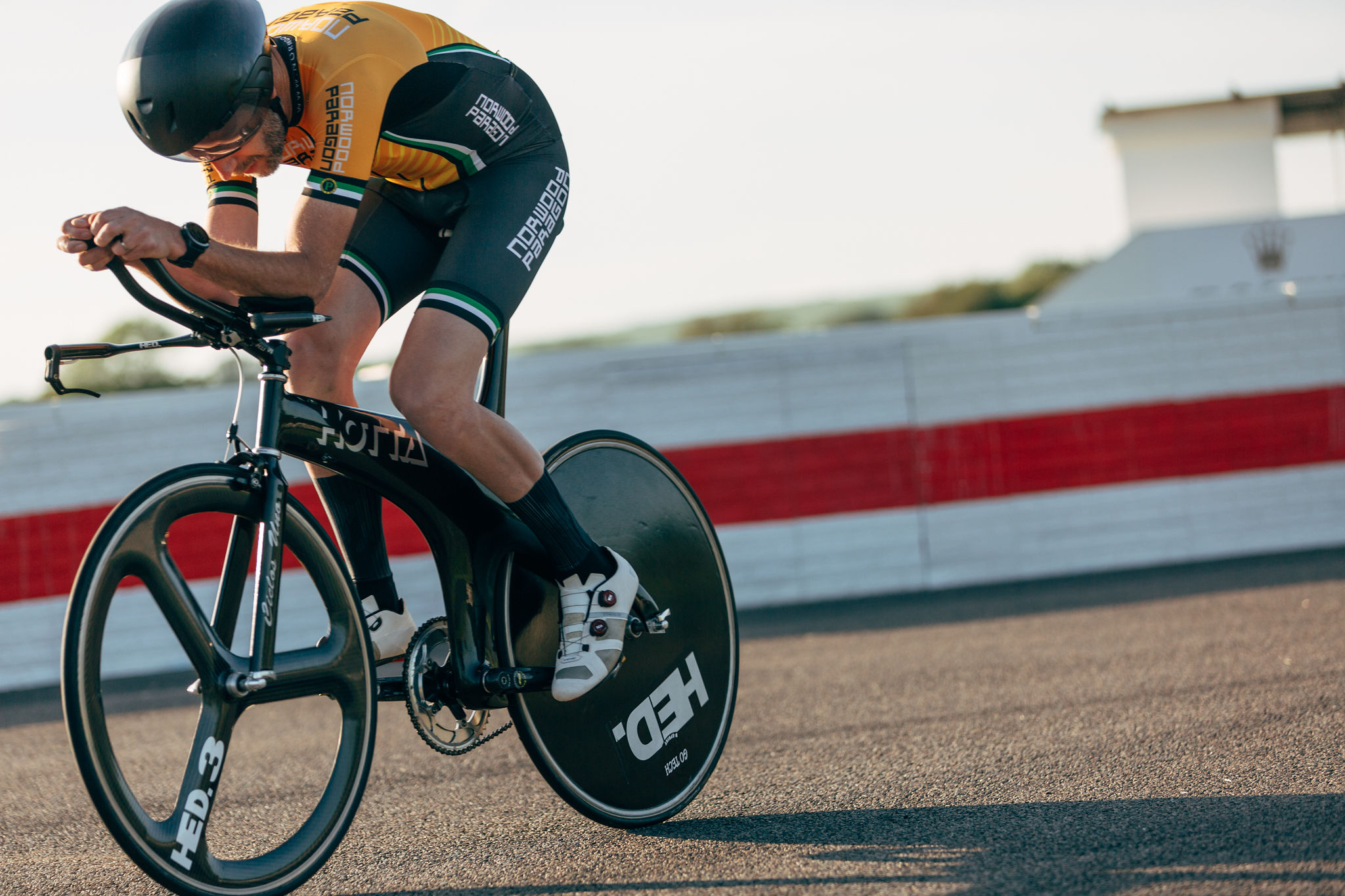Giant Propel Advanced Pro 1 bike review - fast, fun and a fraction of the cost of flagship aero bikes
The SRAM Rival AXS-equipped Propel is an aero all-rounder with an exceptional price-to-performance ratio
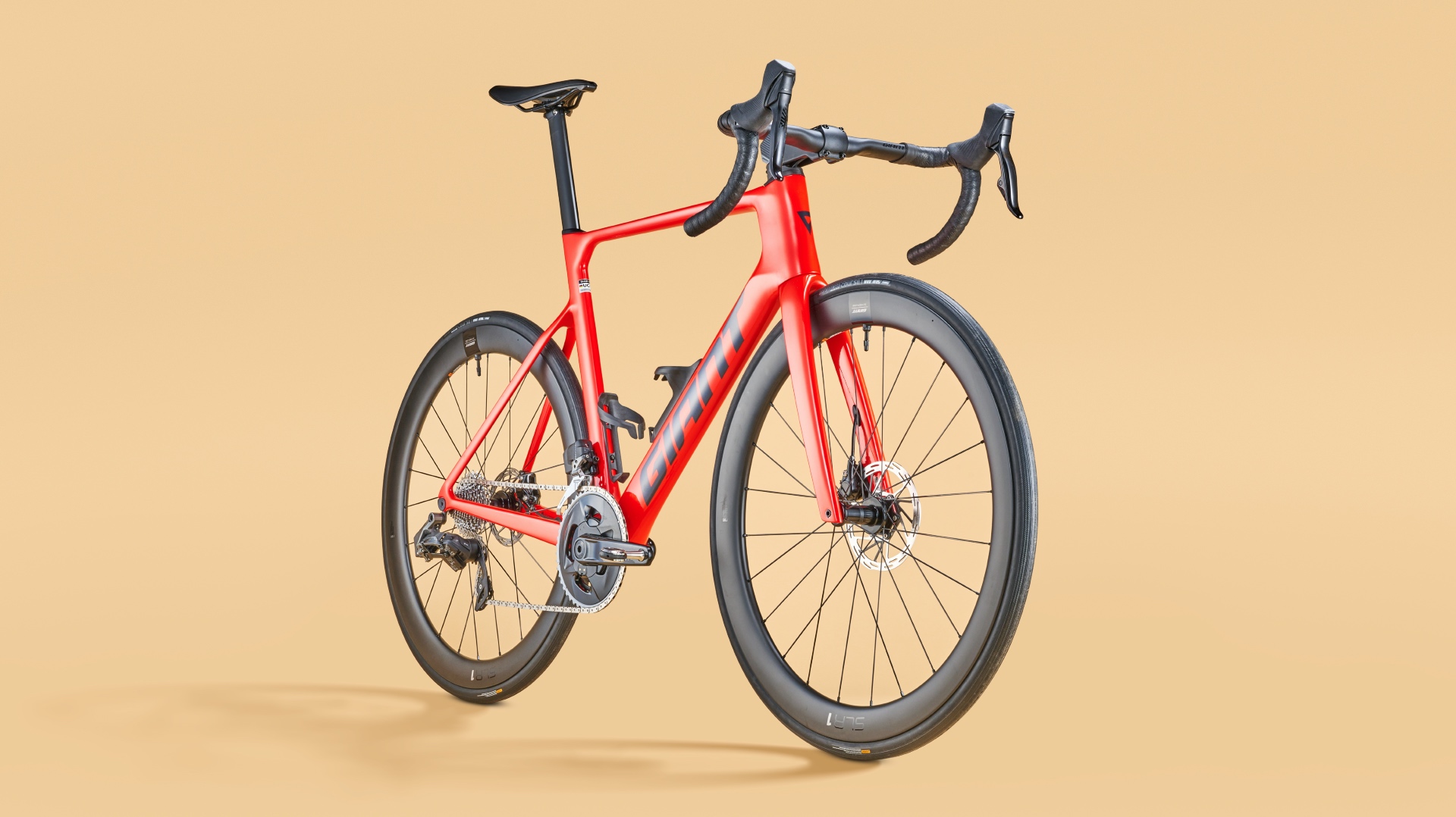
If you’re interested in reaping the improvements in handling and Giant’s latest aero-modelling, want an electronic groupset and carbon wheels but are on a tighter budget, the Propel Advanced Pro 1 is your best option by far. Sure $6,000 / £5,499 sounds like a lot of money, especially considering it's equipped with a third-tier groupset, but compared to the competition the Propel Advanced Pro 1 offers an unmatched performance-to-price ratio. Giant has managed to combine an excellent bike with an exceptional price.
-
+
Aerodynamic
-
+
Smooth
-
+
Includes power meter
-
+
Great value
-
-
On the heavy side
You can trust Cycling Weekly.
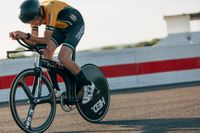
The Giant Propel Advanced Pro 1 was the winner of the ‘best value’ category in our Race Bike of the Year grouptest this year.
Although the top-spec Propel is by no means a bargain at $12,500 / £11,999 – especially compared to the top Canyon Aeroad, which impressively limbos in under five figures – it’s at the entry level where the Propel really stands out, with the cheapest costing less than $5,500 / £3,000.
The low-to-mid-range Propel Advanced Pro 1 that we tested here, equipped with the SRAM Rival AXS groupset, breaks the $6 / £5K barrier, which not so long ago was superbike territory and at face value seems like a crazy price for a bike specced with only the third-tier groupset.
However, considering the amount of R&D that goes into the bikes of the 2020s, and if you compare the technologically advanced Rival AXS groupset that here includes a Giant Power Halo power meter against the decidedly primitive third-tier groupsets of 20 years ago it starts to make a little more sense.
Giant Propel Advanced Pro 1: construction
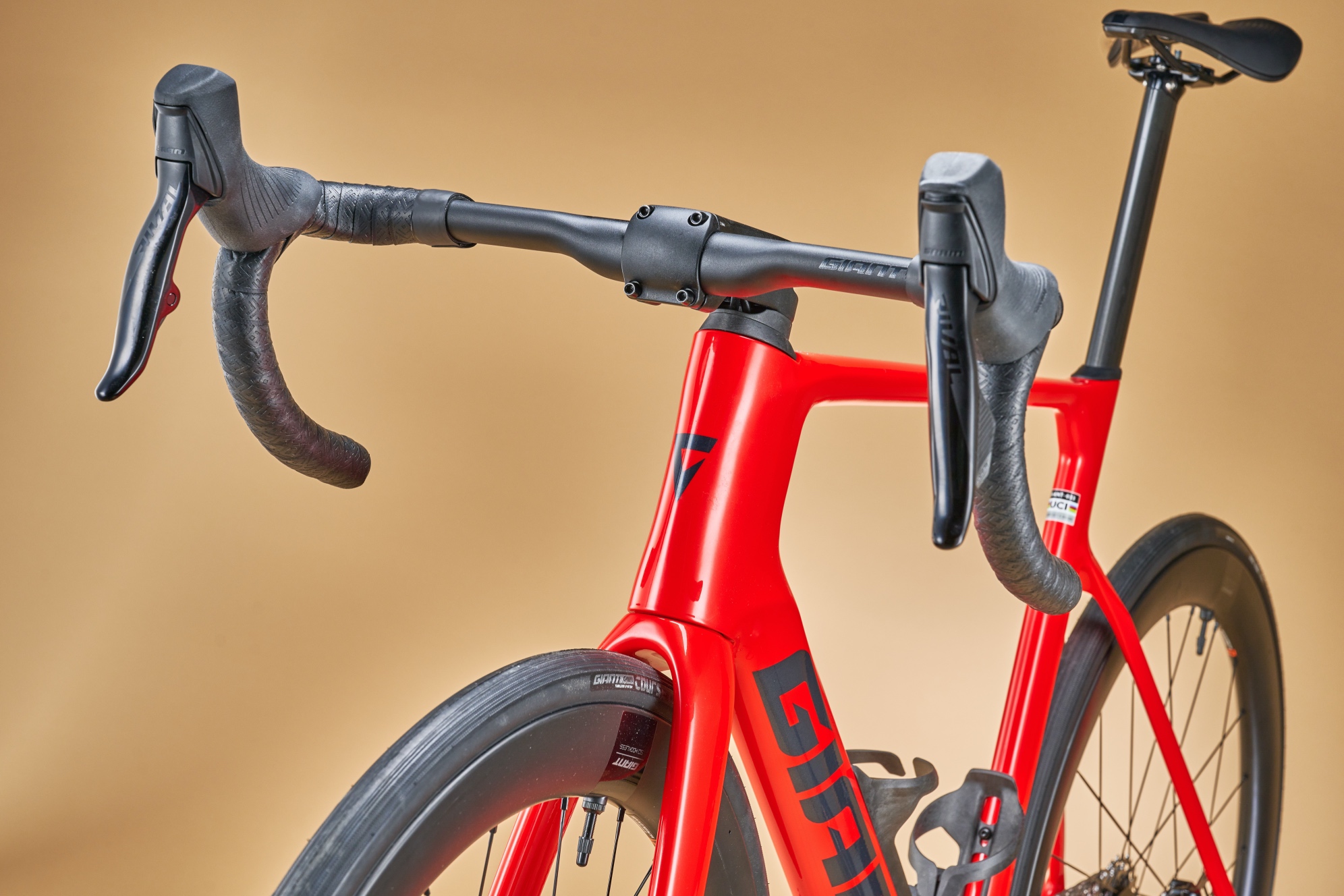
The Giant Propel has in our opinion long been one of the best aero bikes on the market and has always offered a competitive level of performance and spec for the price. This latest iteration has brought a whole host of great improvements to the platform.
The first point to make relates to the scale of the overhaul. Previously, the Propel had a long-established position in the pantheon of deep-tubed aero bikes, but the Taiwanese brand has pivoted to a much slimmer design, one which ascribes a greater priority to both weight and comfort. But aerodynamics haven’t been left by the wayside – Giant claims that even with its slimmer tube shapes, the new Propel is 6.2 watts faster at 40kph than the previous model.
There are three grades of carbon fiber used for the three levels of Propel. This one, the middle level, uses Advanced Grade Composite whereas the top model range, the Propel Advanced SL, uses Advanced SL-Grade Composite and is a little lighter. All the truncated-ellipse tube shapes are the same, except the SL range has an integrated seatpost.
The latest race content, interviews, features, reviews and expert buying guides, direct to your inbox!
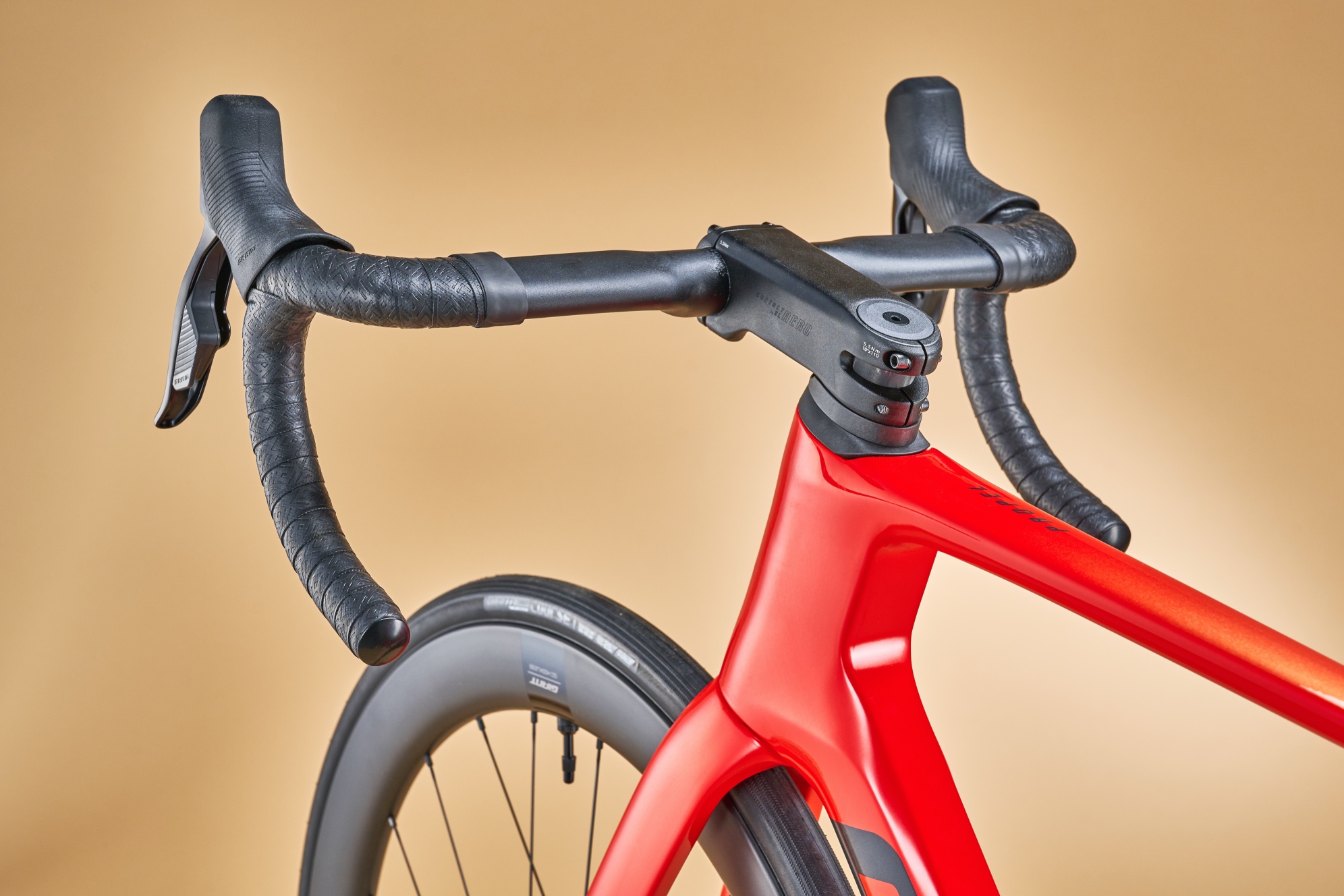
There’s a new bar and stem design making the cockpit more adjustable and customizable than rival integrated setups. The new OverDrive system routes cables through the bars, under the channelled-out stem and into the frame via a D-shaped steerer. It’s aesthetically and aerodynamically cleaner and makes swapping components more feasible. The Advanced Pro gets an alu bar and stem, whereas you get carbon for the Advanced SL.
The Propel’s geometry is now the same as the climbing/all-rounder Giant TCR’s - racy but not ridiculously aggressive with a stack/reach ratio of 1.43. I tested the size M/L TCR for 2021’s Race Bike of the Year and it was exactly right with the stem slammed (I’m 178cm, saddle height 770mm) so I opted for the same size in the new Propel.
It’s classic 73° parallel angles, the shorter wheelbase measures 991mm, chainstays 105mm... everything about the Propel suggests that it’s no longer an aero bike for special occasions - it can be an everyday bike for every situation.
The maximum tire clearance is 32mm, which is plenty for the Giant SLR 1 50 Carbon Disc "WheelSystem", which has a 22.4mm internal rim width making the 700x25c tubeless Giant Gavia tires measure 28mm across.
The ride
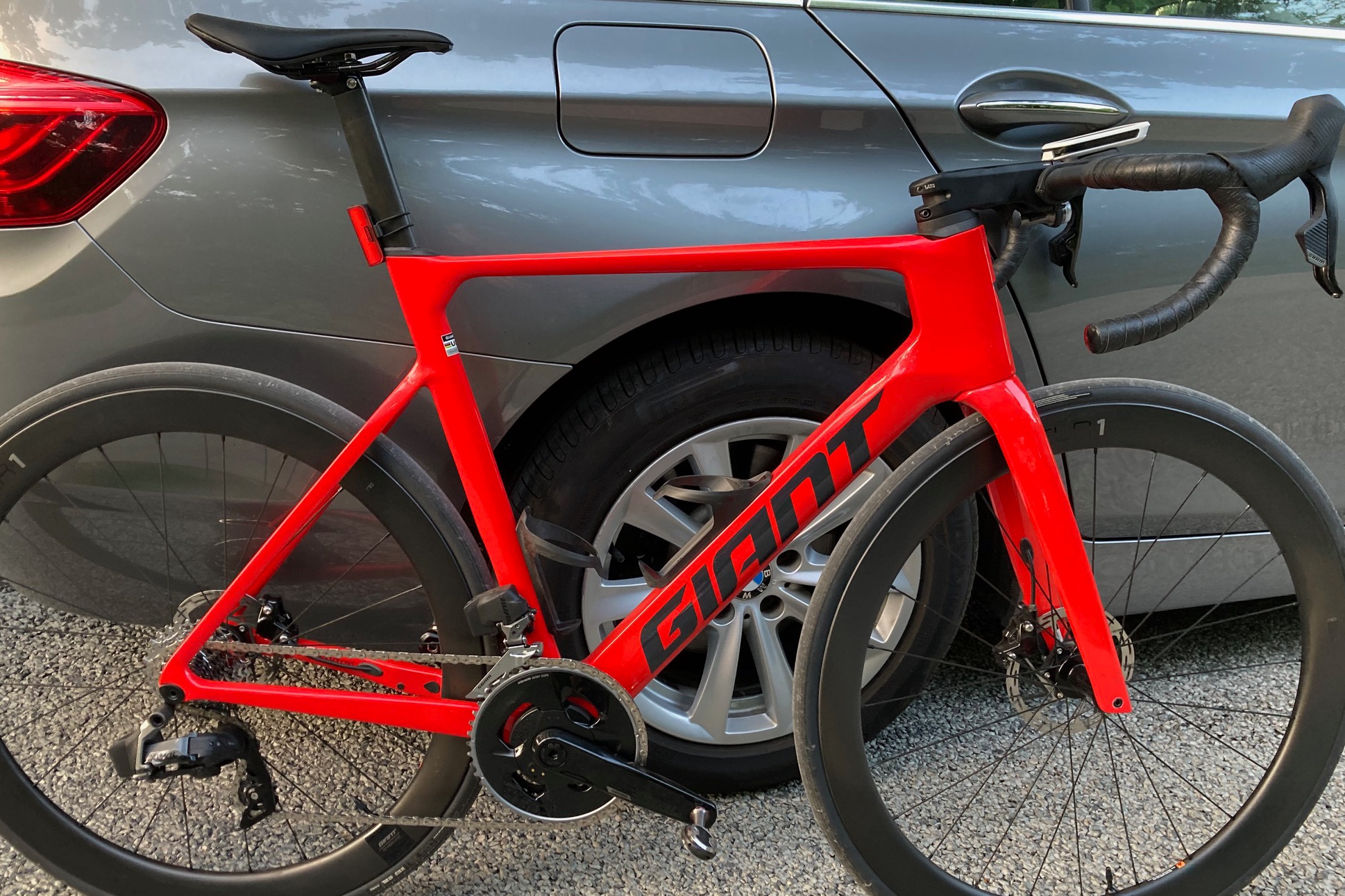
First of all, it feels fast - but stable too. With slimmer tubes the Propel didn’t get caught by the crosswinds across the open fields as the Canyon Aeroad did. Also, with a combination of tires mounted on wider rims and what felt like much better vibration damping from the front end of the bike, the Propel felt smoother and therefore faster than the Canyon.
One of the best things about the Propel having been brought closer in line with the TCR is that compared to the outgoing version I reviewed in 2019 it feels playful but controlled.
I noted that the previous Propel was firm but not harsh, and that there would never be much compliance at the rear due to the horizontal top tube and shorter length of aero seatpost. Now, with a sloping top tube, thinner seatpost and generally skinner rear triangle, the new Propel has more native comfort. It still feels more rigid than the TCR and doesn’t have the plushness of the Trek Madone, but in all areas it has become closer to being an all-rounder with the exception of its weight. At 8.46kg it’s actually 300g heavier than that older Propel I reviewed, but some of that comes down to the SRAM Rival AXS electronic disc-brake groupset which, excellent though it is, weighs more than the mechanical Ultegra rim-brake groupset of that older Propel.
However, as we know, aerodynamics is much more important than weight on all but the very steepest gradients, and in a club time trial on a 12-mile sporting circuit that has plenty of ups as well as downs, I averaged 23.4mph and was only 1m 30sec slower than my course PB set on a Pinarello TT bike four years ago.
Would I be happy with it as my one and only road bike? Yes I would. Unless you live somewhere mountainous (the Surrey Hills are not included in this category) the extra weight of the Propel compared with the equivalent-spec TCR won’t make any noticeable difference, whereas I definitely did notice higher average speeds on my regular loops while I was riding the Propel and that’s what really makes me happy.
Value and conclusion
Compared to the competition at this price point, the Giant Propel Advanced Pro 1 offers great value. Sure five grand isn’t cheap, but it’s all relative. Even an Ultegra Di2-specced Trek Madone will set you back over $9K / £10K and a SRAM Force Cervelo S5 isn't far behind - and these aren't even the top-spec bikes.
As for its performance, there are lighter bikes and more comfortable bikes, but if your focus is on going fast and you don't want to pay five figures, the Propel Advanced Pro 1 has pretty much all of it covered with very few compromises.
Specs
- Frame: Advanced Grade Composite disc
- Fork: Advanced SL-Grade Composite full carbon
- Groupset: SRAM Rival AXS
- Power meter: Giant Power Halo spider
- Wheels: Giant SLR1 Disc 50
- Tires: Giant Gavia 25c
- Bar: Giant Contact SL Aero
- Stem: Giant Giant Contact SL Aero
- Seatpost: Giant Vector, composite, -5/+15mm offset
- Saddle: Giant Fleet SL
- Weight: 8.46kg
- Size tested: M/L
Simon Smythe is a hugely experienced cycling tech writer, who has been writing for Cycling Weekly since 2003. Until recently he was our senior tech writer. In his cycling career Simon has mostly focused on time trialling with a national medal, a few open wins and his club's 30-mile record in his palmares. These days he spends most of his time testing road bikes, or on a tandem doing the school run with his younger son.
